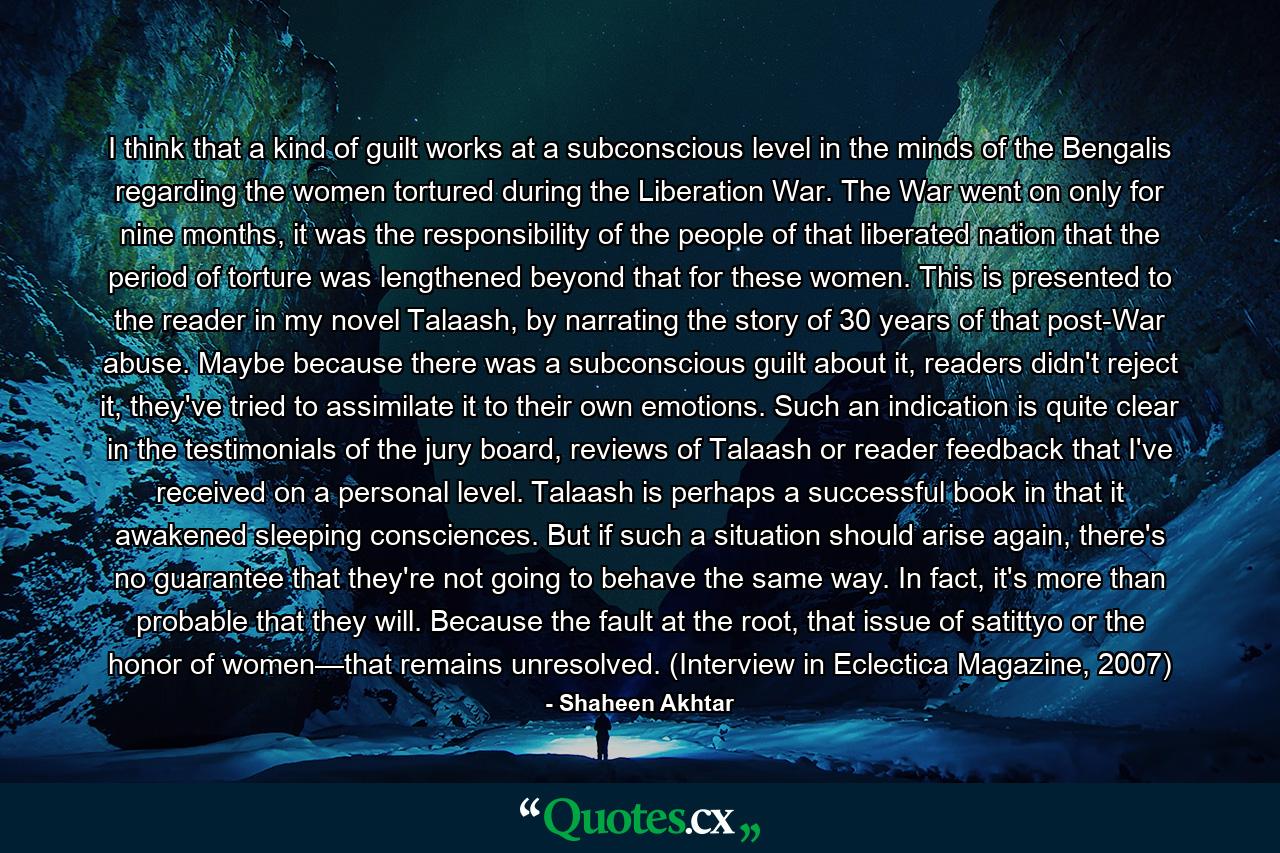I think that a kind of guilt works at a subconscious level in the minds of the Bengalis regarding the women tortured during the Liberation War. The War went on only for nine months, it was the responsibility of the people of that liberated nation that the period of torture was lengthened beyond that for these women. This is presented to the reader in my novel Talaash, by narrating the story of 30 years of that post-War abuse. Maybe because there was a subconscious guilt about it, readers didn’t reject it, they’ve tried to assimilate it to their own emotions. Such an indication is quite clear in the testimonials of the jury board, reviews of Talaash or reader feedback that I’ve received on a personal level. Talaash is perhaps a successful book in that it awakened sleeping consciences. But if such a situation should arise again, there’s no guarantee that they’re not going to behave the same way. In fact, it’s more than probable that they will. Because the fault at the root, that issue of satittyo or the honor of women—that remains unresolved. (Interview in Eclectica Magazine, 2007)
